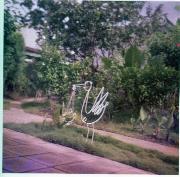 |
||
I am a criolla, a Spaniard born in Spanish American soil. It took me a long time to come to terms with my identity, always different from that of most around me. I was born to a family of privilege in a country where poverty and injustice were my neighbors. I knew just a few of them by name; most, were the nameless faces I saw daily from behind the tall wrought iron fence of my house, the thousand faces of naked children begging for food—their bellies deceitfully full, feeding dirt and disease—and the faces I was never able to see, their little eyes shut to this light. I would often see them in hiding, taking one last ride on their parents’ shoulders, all their beauty enclosed in a white wooden box; tiny boxes in silence calling me behind the glass of the van, veiled faces of lifeless children born on the other side of the fence. A lot has rained since then—as we say in Spanish—but, as I pause to think about the mystery of life—as I often do—I remember. I remember Asunción, a girl from primary school who had to save for an entire year so she could buy new shoes. The thought of it was so incomprehensible to me that I remember talking to my mother about it. She—the youngest of eight children born to a humble police officer and a portera—the doorkeeper in charge of the building where they all lived in a tiny apartment in Spain’s Post Civil War—did her best to explain class disparity. Among many other things, I thank my mom for always inviting Asunción and all my other classmates to our birthday parties. It was not so with some girls who were raised to see themselves as superior just because they happened to be the nieces of the President, or simply—and I do hate this one the most—because they were white. Asunción was one of the fortunate ones. A scholarship allowed her to go to a top-tier school just like every other girl I knew, just like every other girl should. That was not the case of Neri and Marta, two sisters who worked in my house helping with the cooking and cleaning and, most importantly, taking care of us on our way to school or anywhere else when mom could not go because she was looking after the little ones. I do thank God for that... as the chauffeur once asked me—How dare he!—why it was that my mom would never allow us to travel alone in the van without one of the girls. I must have been about eleven, and I did not know why then, but the way he looked at me made me feel extremely uncomfortable. In many respects, my mother is a very wise woman, becoming wiser with every passing year. I remember Neri and Marta fondly because they were part of our family. In our last years in Nicaragua, we all prayed the rosary together at the end of the day. La Martita—as we used to call her—pampered me to no end. She must have been only three years older than I was, and I know she loved us too. I wonder where she may be now. How many children has she had? Did she find someone who respects her and cares for her wellbeing? Is she, still, taking care of the children of others, cleaning a house that is not hers, shielding herself from unwanted sexual advances alone, now that my mom is not there to help her? Neri, her older sister, called my mom when our house was being looted and—bless her soul—asked permission to take our beds. I hope they still have them—I wish they would have kept it all—but, most importantly, I hope they remember how much we loved them, especially how much my mom loved them, teaching them not only to sew and to cook, but also to read and to go to school, and encouraging them to never let any scumbag take advantage of them. THIS I BELIEVE. I believe that all women are vessels of grace. Sadly, the systematization of a long chain of oppressive conditions has tampered with our free-flowing, life-giving nature, intercepting, confusing, and defiling our sacred connection to the Divine. We have thus become encaged in our own vessels, turned upside down by a self-defined omnipotent system to the point that, for many Hispanic/Spanish/Latina women, our personal and collective liberation is still a far cry from reality. In order to radically change the patriarchal interpretation of power and its prescribed self-effacement (of women) as virtue, we first have to become conscious of our own internalized oppression. Only then will we find the courage and the strength to sever ties that bind us to our past and become acting subjects of our present and protagonists of our future. For this, we must look critically at history in general and, in particular, at our own intrahistoria. We must study. Our critical lens of analysis must be the liberation of all (Isasi-Díaz 27). Far from being a virtue, accepting our society’s male chauvinistic mandated roles for women in blind obedience only reinforces the structural sin that, to a large extent, defines our culture, and whose intimate connection to classism we must also pause to carefully examine (Isasi-Díaz 40-41). The absence of knowledge—and of a knowledge that has been questioned by reason in freedom—is slavery. Because of it, books—all books—and schools—all schools—should be fully accessible to all. I believe that I have been called to open the gates to the iron fence, and let the light in. Free, at last.
Isasi-Díaz, Ada María. Mujerista Theology: A Theology for the Twenty-First Century. New York: Orbis Books, 1996. |
||||||||||
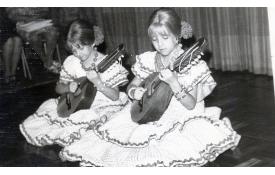 |
||||||||||
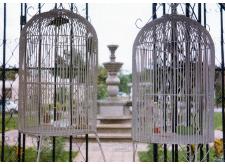 |
||||||||||
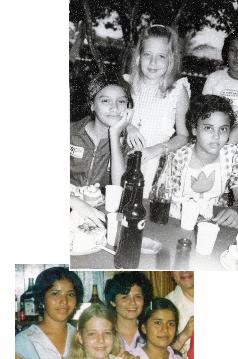 |
||||||||||
 |
||||||||||
Chicago, Illinois, 15 August 2013 © |
||||||||||
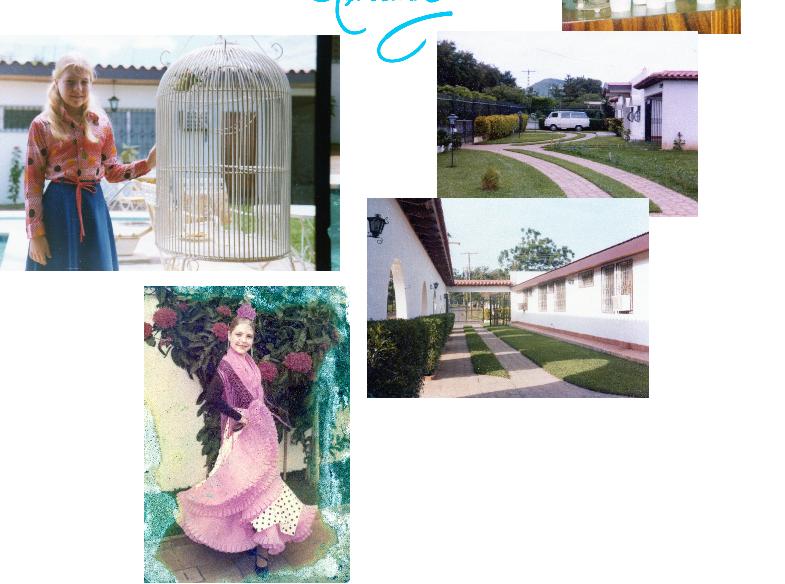 |
||||||||||
